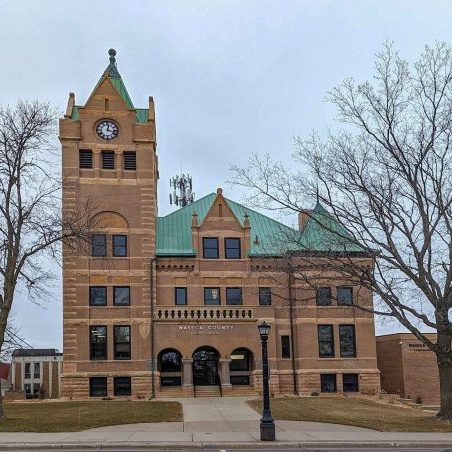A Full Service Minnesota Law Firm
Discover why Patton, Hoversten & Berg, PA is the trusted choice of Southern Minnesota residents for over 50 years.
Let us navigate the complexities of your legal concerns while you focus on what matters most to you.
Contact us today to resolve your legal matters the best way possible based on your circumstances and desired results.
Your Neighborhood Legal Experts
When it comes to legal matters, proximity matters. With offices in Waseca, Owatonna, Janesville, and Faribault, we're your neighbors, ready to provide personalized solutions for your unique challenges. Reach out now and experience the peace of mind that comes from having a strong legal ally by your side.
At PH&B Law Offices, we provide top-notch legal services across various fields. Our practice areas include corporate law, intellectual property, family law, personal injury, and criminal defense. Our experienced lawyers bring a deep understanding and extensive experience to every case. We recognize the complexity of legal issues. That's why we tackle each case with a comprehensive approach. We aim to meet all your legal needs with unmatched excellence and professionalism.
Outstanding Legal Support
Bankruptcy Law
Transform Your Financial Outlook with Bankruptcy Solutions:
Bankruptcy provides practical debt management and relief solutions, allowing you to transform your financial outlook and embark on a path toward recovery and stability.
Business Law
Secure Your Business's Future with Expert Legal Support:
Leverage the expertise of our experienced business attorneys to secure your company's future, from startup legalities to corporate governance and beyond.
Civil Litigation
Protect Your Interests with Experienced Civil Litigation Attorneys:
Our civil defense attorneys are dedicated to safeguarding your interests, offering expert representation to navigate disputes and secure favorable resolutions in your case.
Criminal Defense
Defend Your Rights with Skilled Criminal Defense Attorneys:
Our criminal defense attorneys are committed to fiercely defending your rights, ensuring you receive a fair trial and the best possible outcome in your case.
Divorce & Family Law
Compassionate Representation in Divorce and Family Law Matters:
Our attorneys offer compassionate representation. They understand the emotional complexities of divorce and family law cases and strive for the best outcomes for you and your family.
Estates And Probate Law
Secure Your Legacy with Estates and Probate Law Guidance:
Our real estate law team excels in managing complex transactions, guaranteeing accuracy and safeguarding the interests of buyers, sellers, and investors alike.
Personal Injury Law
Fighting for Justice in Personal Injury Cases:
Our dedicated attorneys are committed to fighting for justice for victims of personal injury, ensuring you receive the compensation you deserve for your suffering and losses.
Real Estate Law
Navigating Real Estate Transactions with Precision:
Our real estate law professionals are skilled at navigating complex transactions, ensuring precision and protection for buyers, sellers, and investors alike.
Workers' Compensation
Our attorneys focus on workers' compensation law and are committed to securing fair compensation for injured workers, ensuring they receive the benefits they are rightfully entitled to.
Put Our Legal Expertise to Work

Discover the wide range of legal options uniquely available to your case with our expert guidance. From negotiation to litigation, we'll help you understand and choose the best path for your legal journey, ensuring tailored solutions and clarity in your legal situation. Contact us today to discuss your options and embark on your path to legal success.
Community Engagement and Legal Recognition
At Patton, Hoversten & Berg, PA, our commitment to community involvement is a source of immense pride. Our attorneys and staff are actively engaged with both local and statewide organizations, such as the Chamber of Commerce, Exchange Club, Rotary, and a variety of charitable entities. Our efforts are aimed at making a meaningful impact on the well-being of our community members.
In recognition of our commitment to legal excellence, Patton, Hoversten & Berg, PA, has been awarded the esteemed AV Preeminent rating from the Martindale-Hubbell Law Directory, the highest honor bestowed. This rating acknowledges our attorneys for their outstanding legal skills, communication prowess, and ethical practices. It is based on confidential evaluations from those who have worked directly with our law firm and its legal professionals.

Rice County Courthouse

Steele County Courthouse










